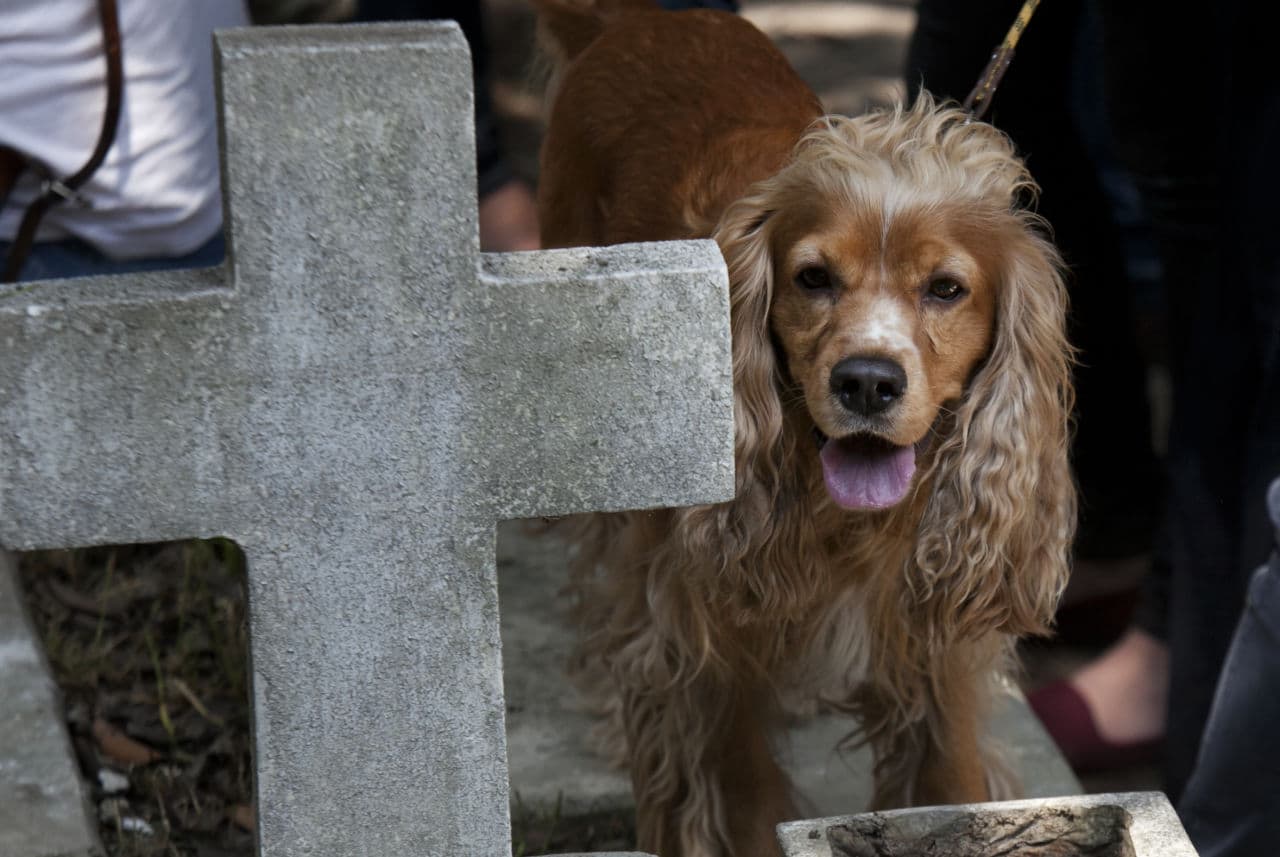Advertisement
Slaying of Mexican Journalist 'A New Low'
Resume
A suspect has been arrested in last week's killing of Mexican photojournalist Ruben Espinosa and four women in an apartment in a middle class neighborhood of Mexico City.
Espinosa had fled to the capital in June after receiving death threats in his home state of Veracruz. Espinosa is said to have been tortured before he was shot in the head.
The targeting of journalists is an all-too-familiar story in Mexico, where more than 100 have been killed since 2000, according to Human Rights Watch. But Alfredo Corchado tells Here & Now's Peter O'Dowd this one is different.
Interview Highlights: Alfredo Corchado
On what might have led to Espinosa's death
"Ruben wasn't really covering organized crime, which is one of the things that surprises many colleagues. He was much more focused on social issues. Some of the protests, whether they involved students that have disappeared, the Ayotzinapa massacre last fall, the disappearance and killing of his colleagues. There was one particular photograph that from the allegations that we've heard, and what authorities have said, a photograph that involved the beating of students in the state of Veracruz. And apparently Ruben got into a lot of trouble after that photograph here, because it suggested the state authorities were behind the beating of these students."
Why he called Espinosa's death "a new low"
"It's a new low because we live in la ciudad, the city, Mexico City. This is the bubble, and I think the bubble has burst. I mean this is a safe haven from much of the mayhem that's been happening across the country for more than a decade now. And it was a sense of a degree of confidence that we all operated under some kind of protection. I think Ruben's killing breaks that confidence. It breaks that safety net. As a colleague told me recently, that safety net is coming undone. It's just torn to pieces."
"I think it's an ominous turning point. Not just for journalists like myself, but for journalists, colleagues - whether they're Mexican or foreign. I think we're all worried."
"This the capital, I mean I think for a long time we want to believe that things like that don't happen. Although we've been proven wrong, I mean we've had narco killings, we've had other ominous signs that suggest that we're really not that far removed from the rest of the country. But this was the first killing against a Mexican journalist in a long, long time. I think the last high-profile killing was in 1984, with a journalist by the name of Juan Manuel Buendia. So I think for 25, 30 years, we've lived under this false sense of confidence."
How journalists in Mexico are responding
"I think it's an ominous turning point. Not just for journalists like myself, but for journalists, colleagues - whether they're Mexican or foreign. I think we're all worried. I mean I would like to continue believing that being a U.S. citizen gives me some kind of protection, where if something was to happen to me or to another foreign colleague, we wouldn't be just another number. But I would be remiss if I didn't say that this is, at least in my case, it's made me think otherwise. And I think that's why it's so important for the authorities, state authorities, federal authorities, authorities in Mexico City, to try to get to the bottom of this. Because I think that, in many ways, the story's bigger, it's really freedom of expression. And I think that's really what's at stake here."
Why Corchado, an American citizen, has remained in Mexico
"It's a very difficult question, and it's a question that I think a lot of my family members - I know my mother asks me all the time - loved ones, I see it as it's both a personal story, it's professional reasons. I was born in Mexico, grew up in the United States, I think I've lived half my life in Mexico. And I think there's a responsibility among journalists who have more protection to try to tell these stories, so that the killings, the murders, the disappearance of more than 120,000 people in nearly 10 years, it's not forgotten."
"I mean I think if something always troubles me about the United States, about Americans, is that they don't really know what's happening in Mexico. There's a sense of, 'Oh it's just another country south of the border, there's so much corruption, people killing each other.' But I think there has to be much more awareness, and if you talk to victims in Mexico, the say, 'Americans have to do much more to try to pressure from abroad.' The change that they're looking for, to try to build a civil society, it's not going to happen just with Mexicans working at it. Here, I think there's a sense that this is a shared responsibility. There has to be much more attention, and what do you do with journalism? You try to raise awareness, you try to shine a light, you try to hold the powerful accountable."
Guest
- Alfredo Corchado is the Mexico correspondent for the Dallas Morning News, and the author of the book "Midnight in Mexico: A Reporter's Journey Through a Country's Descent into Darkness." He tweets @ajcorchado.
This segment aired on August 7, 2015.